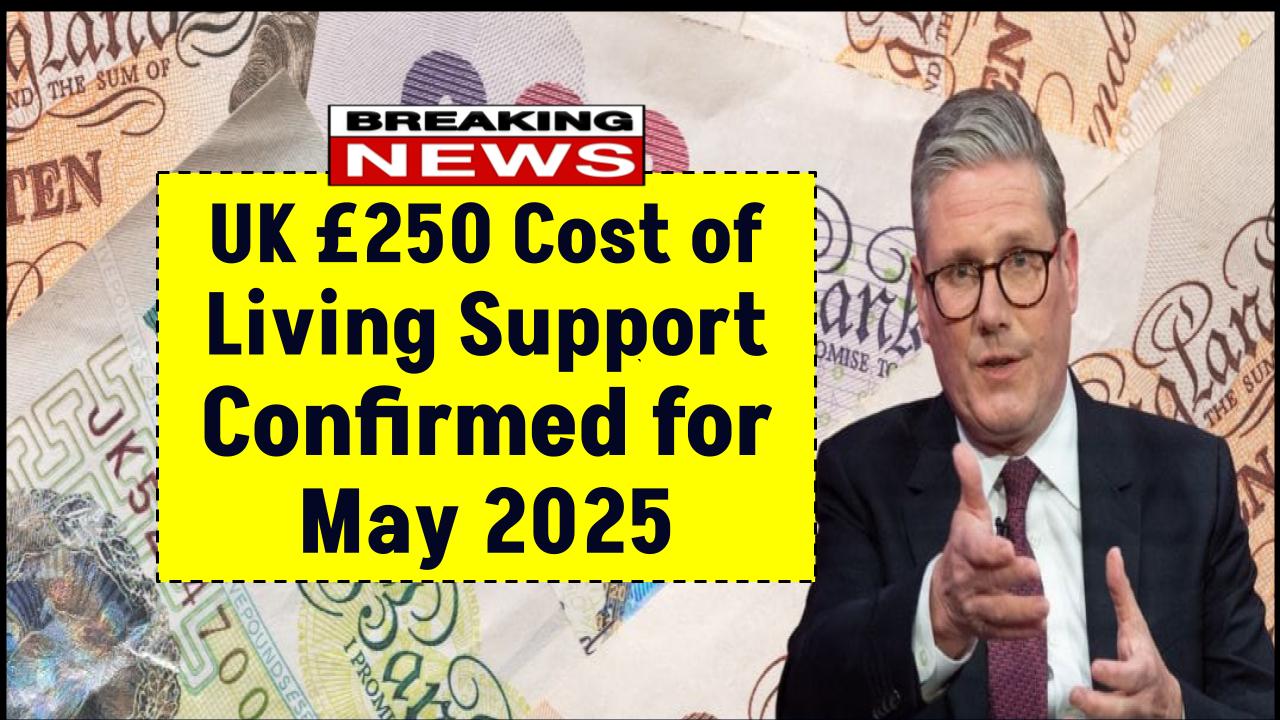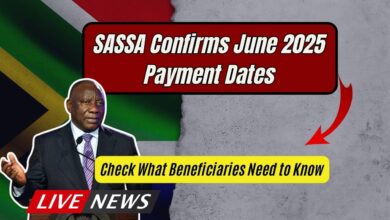Universal Credit 2025: When You’ll Get Paid and What Causes Delays
Universal Credit 2025 – If you’re depending on Universal Credit in 2025, timing is everything. With prices going up, wages lagging, and unexpected bills creeping in like a raccoon in your trash can, knowing when you’ll get your payment is critical. But here’s the kicker — payments can sometimes get delayed. And when they do, it’s not just a hassle, it can throw your whole budget into chaos.

Let’s break down when Universal Credit lands, what causes hold-ups, and how you can keep your finances on track even when the system gets wonky.
Universal Credit 2025
| Key Info | Details |
|---|---|
| First Payment | Usually arrives 5 weeks after you apply |
| Regular Payments | Once per month, on the same date each cycle |
| Delays Happen When | Holidays, employer reporting errors, migration issues |
| Next Big Holiday Delay | May 26, 2025 (Spring Bank Holiday — payments may arrive May 23) |
| Support Available | Advance payment, DWP helpline, Citizens Advice |
| Deductions Possible | Yes, for rent arrears, loans, advance payments |
| Extras to Watch | Cost of Living Payments, Free School Meal boosts, Housing Support |
| Official Website | https://www.gov.uk/universal-credit |
Universal Credit 2025 is still a lifeline for millions of people across the UK, but you’ve gotta stay sharp to avoid getting tripped up by delays. From bank holidays to bungled payrolls, a lot can mess with your money. The good news? You can stay ahead by keeping tabs on your journal, planning around the calendar, and knowing your rights.
Need help? Don’t be shy. Call the helpline, hit up Citizens Advice, or ask for an advance. It’s your benefit, and you’ve earned it.
What Is Universal Credit and How It Works in 2025?
Universal Credit (UC) is the UK government’s flagship welfare benefit, replacing six older benefits with a single monthly payment. It supports people who are on low income, out of work, or unable to work. As of 2025, more folks are on UC than ever before, especially with the DWP’s continued “managed migration” push.
The idea is simple: you get paid once a month, based on your earnings, family setup, rent, and other factors. But in practice? It can feel anything but simple.
UC also includes extra elements like housing cost support, childcare help, or disability elements if you qualify — but these must be claimed properly to be included.
When Will You Get Paid in 2025?
Your First Universal Credit Payment
When you first apply, there’s a five-week wait. That’s because DWP uses a one-month “assessment period,” then takes about 7 more days to process your payment.
Example: If you applied on March 5, 2025, your first payment would likely land around April 9-10.
You can apply for an advance payment if waiting five weeks leaves you short on cash — but remember, it’s a loan, and they’ll deduct it from future payments.
Regular Monthly Payments
After that first drop, UC hits your account every month on the same date. If your usual pay date falls on a weekend or bank holiday, you’ll often get paid the business day before.
Example: If your UC payday is May 26 (Spring Bank Holiday), you’ll likely see that money land Friday, May 23.
To keep it smooth, always double-check your UC journal, because that’s where the DWP posts your next payment date.
Common Causes of Universal Credit Delays
1. Bank Holidays (Big Culprit!)
DWP pays early when a bank holiday lands on your UC payday. Sounds great, right? But it can trip people up.
If you get paid early, the next payment still arrives a month later, which means a longer gap. That can lead to budgeting nightmares.
Keep an eye on holidays like:
- May 5 (Early May)
- May 26 (Spring Bank)
- August 25 (Summer Bank)
- December 25-26 (Christmas & Boxing Day)
2. Employer Reporting Errors
DWP calculates your UC based on what your employer reports. If they send the info late (or send it twice), it can mess with your payment.
Let’s say you’re paid every 4 weeks. Sometimes, two paychecks fall into one assessment period. The system thinks you made more than you did and slashes your UC for that month.
Tip: Talk to your employer. If their payroll department is a mess, you’ll feel it in your wallet.
3. Managed Migration Woes
If you’re switching from legacy benefits like Tax Credits or ESA, you’ll get a migration notice. You have 3 months to apply for UC or you risk losing support.
During the transition, payments can be delayed or come in odd amounts. Some people qualify for transitional protection, which keeps them from losing money during the switch.
Check your mailbox and online UC journal — missing a deadline could mean missed rent.
4. Banking Issues
If you change your bank account and forget to update UC, payments could bounce back. Same goes if your account is frozen, closed, or flagged for fraud.
5. Deductions for Debts or Overpayments
Sometimes your payment might be lower than expected. That could be due to deductions taken to repay rent arrears, utility debts, or previous overpayments — including advance payments.
These deductions are legal, but you can request a hardship review if they leave you unable to afford essentials.
How to Avoid and Fix Payment Delays?
Check Your Universal Credit Journal
Log in to your UC account and check for notes. Payment dates, messages from your work coach, and errors all show up there.
Contact the UC Helpline
You can call 0800 328 5644, Monday to Friday from 8am to 6pm. Or use your UC journal to send a message to your work coach.
Apply for an Advance Payment
If you’re broke and waiting, request an advance. You’ll pay it back slowly from your monthly UC, but it can keep the lights on and food on the table.
Reach Out to Citizens Advice
They run a program called Help to Claim. It’s totally free and they walk you through everything from forms to appeals. Find them at https://www.citizensadvice.org.uk/benefits/universal-credit/
Tips to Stay on Track
- Set up reminders for key dates like bank holidays
- Review your paystub dates and match them with UC assessment periods
- Keep your info updated — especially bank details
- Respond quickly to UC messages or migration letters
- Look into additional support like Housing Benefit top-ups, Cost of Living payments, and Free School Meals
DWP Update: This Birth Decade Could Unlock £4,200 Per Year in Support
DWP Confirms Cost of Living Payments Ending in 2025 — What Beneficiaries Need to Know
£749 Per Month for Half a Decade? DWP’s Long-Term PIP Scheme Explained
FAQs About Universal Credit 2025
Q1: How long does the first Universal Credit payment take?
A: Around 5 weeks. It includes one full assessment period plus processing time.
Q2: What happens if my payment is late?
A: Check your UC journal or call the helpline. You can also request an advance payment if you’re short on cash.
Q3: Why did my UC payment drop this month?
A: It could be due to higher income reported during your assessment period, or an error in employer reporting. Deductions for debts may also apply.
Q4: Will I still get UC if I miss the migration deadline?
A: No, you must apply within 3 months of receiving your migration letter or risk losing benefits.
Q5: How can I avoid issues with bank holidays?
A: Budget for longer gaps between payments and track your monthly dates ahead of time.
Q6: Can I get extra support if I have kids or high rent?
A: Yes. UC includes housing support, childcare elements, and child amounts. You must report these in your claim.
Q7: What are Cost of Living payments and do I get them on UC?
A: Yes. Eligible UC recipients may get additional one-time payments during the year. Check your journal and DWP announcements.







